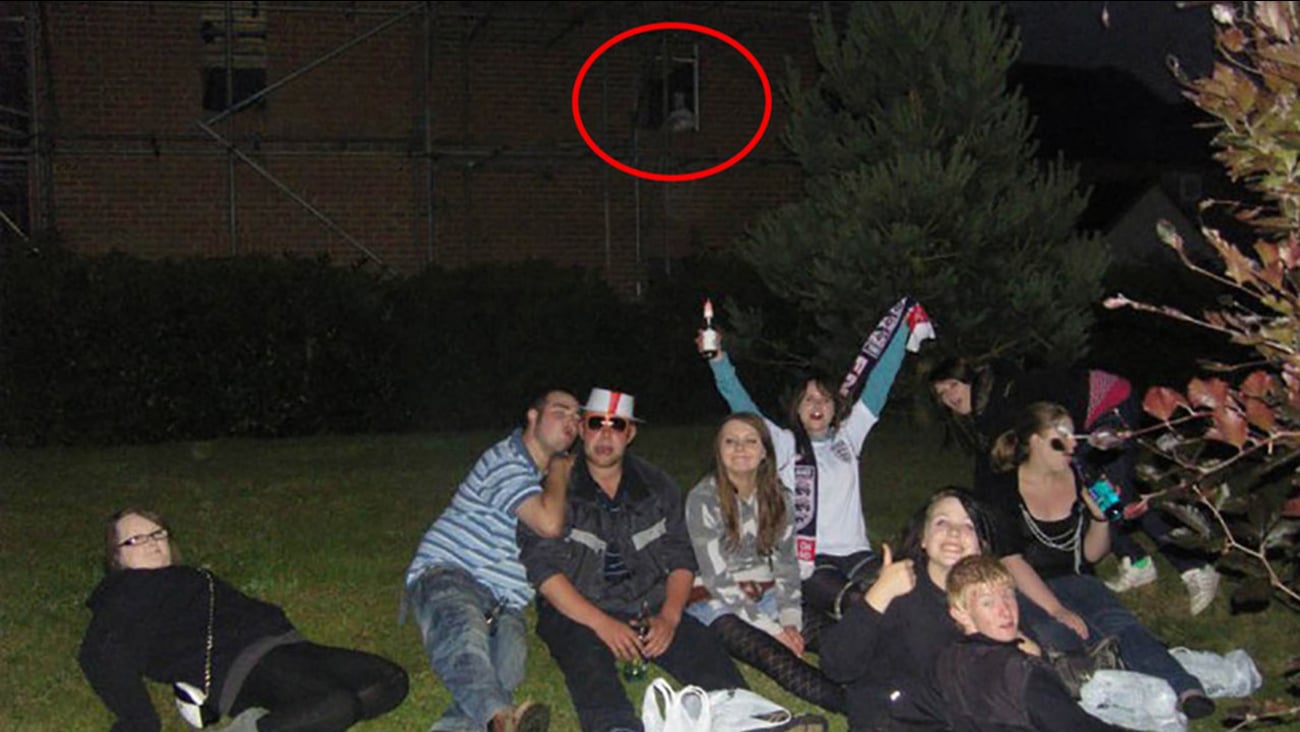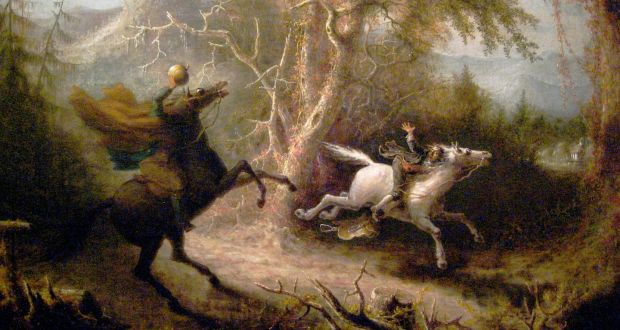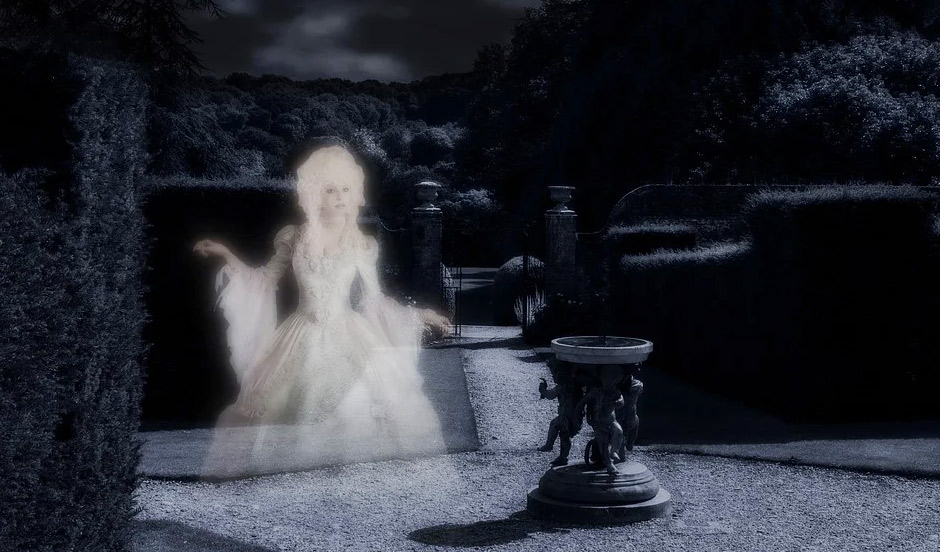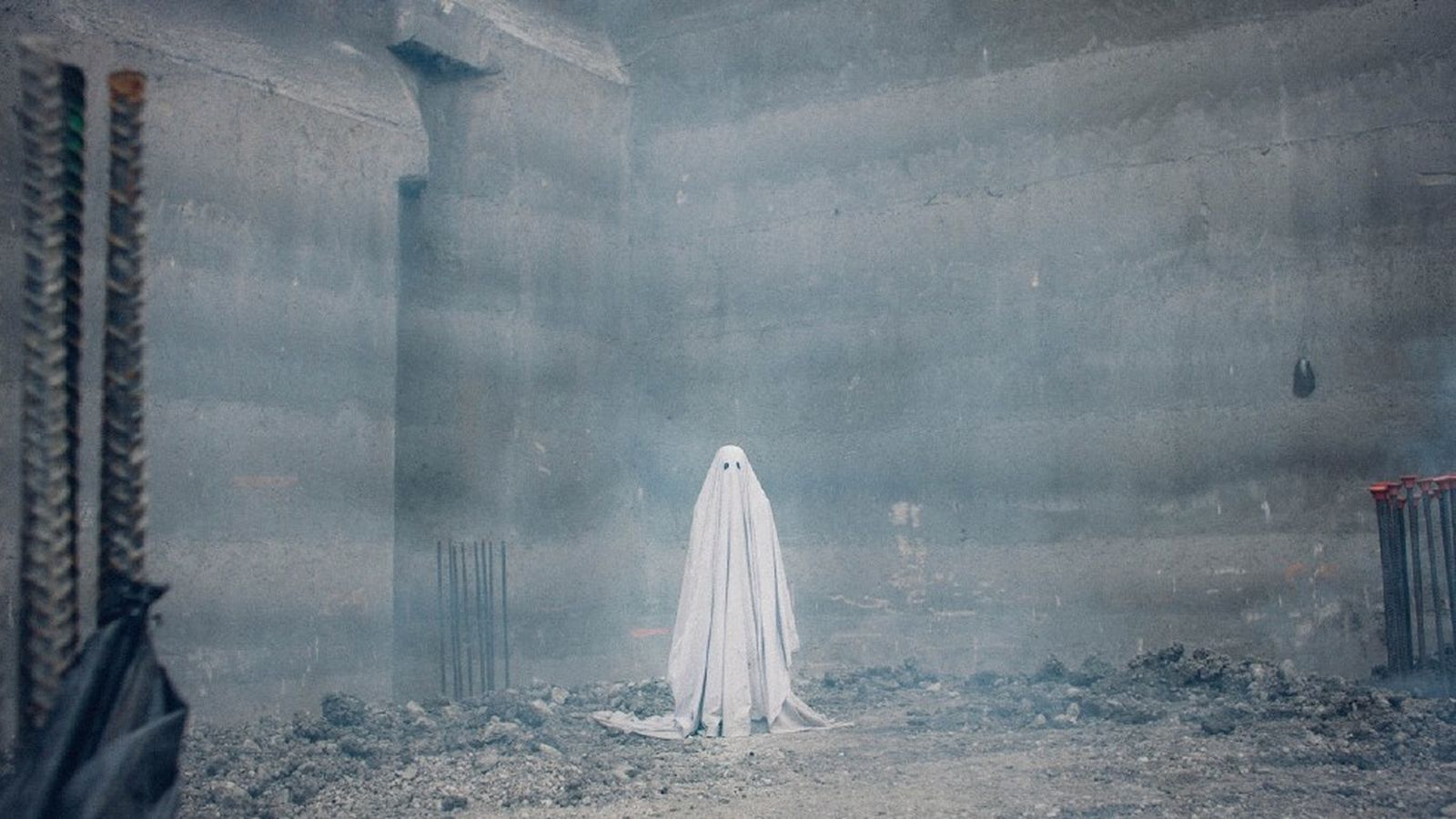In 2013, a photo of a group of friends sitting on the grass swept across social media. Not because there was anything humorous or outlandish regarding the friends, it’s what was behind them. In a window in the building behind the group, there appears to be a figure.
When Natasha Oliver snapped the photo in the small English town of Wem, she said everyone immediately was perplexed by the mysterious figure. The friends went to investigate but found nobody in the building. “I believe the ghost is of a woman and looks like she’s holding something like a baby,” Oliver said. “My friends are also thinking the same but we will not be sure until someone investigates it.”

There’s no shortage of photographic “evidence” for the paranormal and people have been reporting ghostly sightings for centuries. The scientific community has largely declared ghosts to be in the same imaginary category as elves, fairies, and the abominable snowman. Still, a lot of people continue to believe in the supernatural.
According to a 2019 poll of nearly 1,300 adults, 45 percent of Americans believe in the existence of ghosts. That number was slightly higher in the U.K. with 52 percent of the population believing in the possibility of ghosts. Only 13 percent of people, however, believe in the existence of vampires (sorry, bloodsuckers).
Our brains need to believe in phantoms, ghouls, and ghosts
Could it be that our brains are actually hardwired to believe in ghosts as a means of securing our survival? Well, that’s the theory proposed by Christopher French, a psychologist leading the Anomalistic Psychology Research Unit at London’s Goldsmiths University. French’s job sends him out to investigate paranormal experiences and look for the non-paranormal cause behind them. One could argue that he is indeed a ghostbuster.
French explains humans’ belief in the paranormal using Daniel Kahneman’s theory that we have two ways of thinking. The first is reactionary and the second is rational. Reactionary thinking is quicker but can be more flawed, while rational thinking is slower but can be more accurate.
For primitive humans, this thinking might look something like this. Suppose a prehistoric man hears something rustling in a bush. Reactionary thinking could lead him to assume it’s a large predator or enemy ready to kill him and he flees without hesitation. Rational thinking may lead him to investigate and discover it’s only a small bird… of course, if he’s wrong his life may be over.
Author Washington Irving made good use of this sort of predisposed thinking of mankind in his story The Legend of Sleepy Hollow. Perhaps old Ichabod Crane should have merely taken his time to investigate those strange sounds in the woods, rather than chalking it up to the ghost of a headless Revolutionary War soldier.

Humans like to think of themselves as rational thinkers, but more often than not, we lean towards reactionary thinking because of evolution, explained French. “Our brains almost seem prewired for what I would call weird beliefs,” he said.
According to French, our brains are biased and initially bypass the rational conclusion for something more ominous. “So you get the misinterpretation of noises or visual effects that do have a normal explanation, but not one that people can think of. People assume that if they cannot explain something in natural terms, then it must be something paranormal.”
Perhaps ghosts keep our morals in check
The belief in ghosts is by no means linked directly to the Western world. Nearly every culture on Earth has a link to a belief in the paranormal. Nearly 90 percent of the population of Taiwan believes in ghosts and Korea, Japan, China, and Vietnam also report high numbers of those believing in spectres.
Tok Thompson, mythology scholar at the University of Southern California who does believe in the supernatural believes that ghosts generally “haunt for good reasons.” This could be for such things as some sort of ethical failure such as an unsolved murder or preventable tragedy. These sightings could serve as a reminder of the “ethics and morality” that can carry a heavy spiritual burden, explains Thompson. A belief in ghosts could simply help make us better people.
Perhaps this is why ghost stories are so popular at Halloween. Or maybe our primitive brains just get a kick out of the occasional scare.

Photos via Pixabay, Wikipedia Commons, Facebook, A24 Studios

